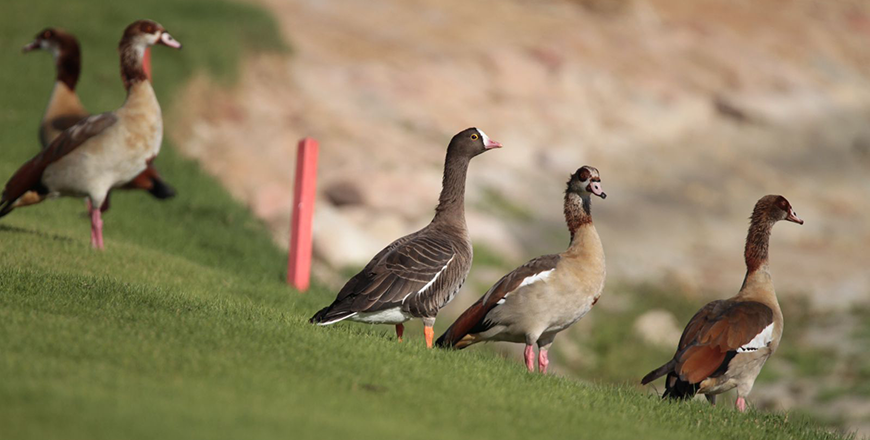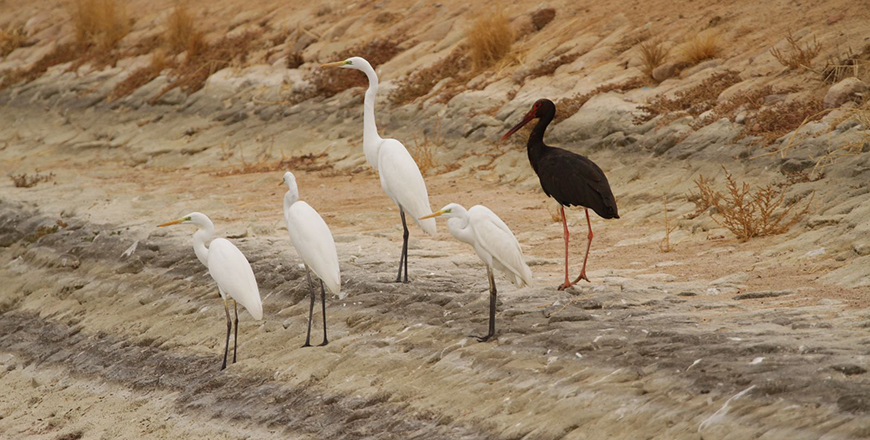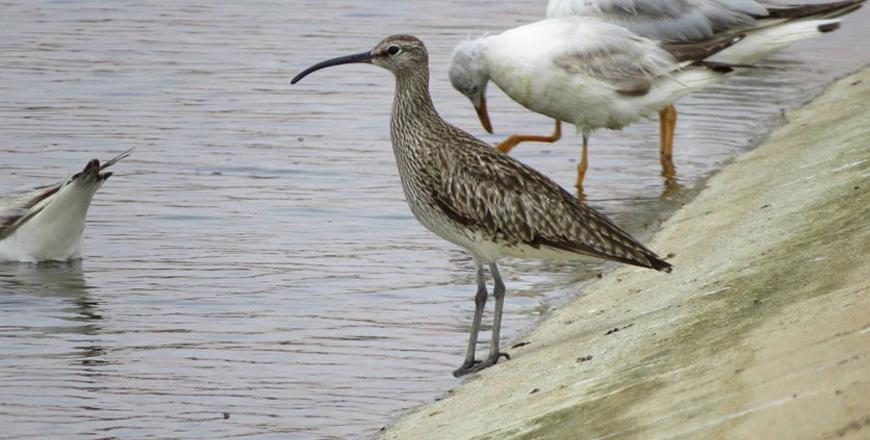You are here
Aqaba Bird Observatory, RSCN spotlights Aqaba as key migratory route for over 1.5 million waterbirds
By JT - Mar 31,2024 - Last updated at Mar 31,2024

Royal Society for the Conservation of Nature (RSCN) and Aqaba Bird Observatory (ABO) say that Aqaba is the world's second most important flyway, serving as a vital region for over 1.5 million migratory waterbirds (Petra photos)

AMMAN — Aqaba is the world's second most important flyway, serving as a vital region for over 1.5 million migratory waterbirds and millions of other bird species on their journey between Eurasia and Africa, according to a recent survey conducted by the Royal Society for the Conservation of Nature (RSCN) and Aqaba Bird Observatory (ABO).
The study highlights Ayla’s essential role as a resting place for migratory birds, based on data from the autumn migration season, emphasising the importance of preserving Ayla’s environmental systems for its long-term sustainability, according to the Jordan News Agency, Petra.
The study also cited Ayla’s ongoing biodiversity conservation efforts, which include providing diverse habitats within the Ayla project, making it a favoured destination for birdwatching enthusiasts.
Sahel Dudin, Ayla’s CEO, noted that over 270 bird species have been documented in key areas, including the ABO and the Ayla project.
Firas Rahahleh, ABO director, noted that the autumn 2023 survey of the Ayla project identified 93 bird species, including four endangered species. One of these is a rare species seldom seen in Jordan. Rahahleh also noted the registration of the Lesser White-fronted Goose, marking only the second sighting in Jordan since its first documentation in 2018.
Rahahleh also reported the presence of the Ferruginous duck in Ayla’s surroundings last November in addition to two other endangered species, the steppe eagle and the lapwing. He also emphasised the urgent need for its protection as an endangered species due to habitat degradation.
Related Articles
AMMAN — Ayla Oasis in Aqaba has emerged as a leading destination for birdwatching and biodiversity conservation, with a recent survey reveal
AMMAN — The Aqaba Bird Observatory (ABO) registered over 147 species of migratory birds during the spring migration season, many of which ar
AMMAN — Two rare bird species were spotted in the Aqaba Bird Observatory (ABO), one of the sites affiliated with the Royal Society for the C


















